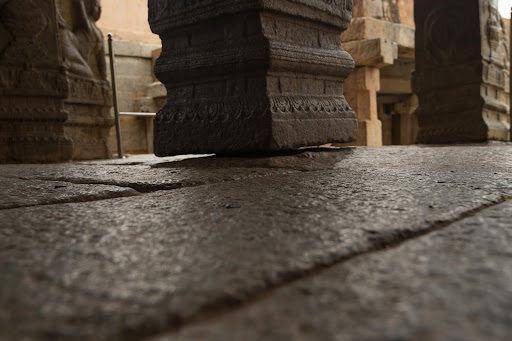Lepakshi Temple, located in the Anantapur district of Andhra Pradesh, India, is renowned for its architectural brilliance and captivating sculptures.
Among its many intriguing features, the hanging pillar of lepakshi temple stands out as a captivating mystery. The hanging pillar of Lepakshi Temple is a marvel of ancient craftsmanship that has bewildered visitors and experts alike. In this article, we will explore the enigmatic tale of this architectural wonder and delve into the secrets surrounding its construction and design.
The Legend Behind the Hanging Pillar
Legend has it that the hanging pillar of Lepakshi Temple was constructed by the renowned sculptor and architect, Amarashilpi Jakkanna, in the 16th century.
According to the local folklore, Jakkanna carved the pillar and suspended it in the air to showcase his exceptional skills.
However, during the British colonial era, some curious engineers attempted to unravel the mystery of the hanging pillar. In their quest to solve the enigma, they dislodged the pillar slightly from its original position, causing a misalignment that exists to this day.
The Architectural Marvel of the Hanging Pillar
The hanging pillar of Lepakshi Temple is a fascinating example of ancient Indian architecture. The pillar stands at an angle from the ground, with its top touching the ceiling while the bottom portion remains detached. This remarkable feature has puzzled architects, engineers, and historians for centuries. Despite the pillar's apparent imbalance, it remains standing without any visible means of support.
Construction Techniques and Engineering Marvels
The hanging pillar of Lepakshi Temple showcases the ingenious construction techniques employed by ancient artisans. The pillar, carved out of a single slab of granite, is a testament to the precision and craftsmanship of the sculptors. The engineers of that time devised an innovative method to create the illusion of the pillar hanging without any visible support.
Secrets of the Hanging Pillar Revealed
The mystery behind the hanging pillar lies in its cleverly designed interlocking mechanism. Researchers and experts have discovered that the pillar is not actually hanging but is instead balanced on a small support that is hidden within its base. This support remains concealed, giving the illusion that the pillar is hanging from the ceiling. The precise engineering and skillful craftsmanship involved in creating this concealed support system are truly remarkable.
Frequently Asked Questions (FAQs)
Q: What is the Hanging Pillar of Lepakshi Temple?
The hanging pillar of Lepakshi Temple is an architectural marvel located in the Anantapur district of Andhra Pradesh, India. It is a pillar that appears to be hanging from the ceiling without any visible means of support.
Q: Who constructed the Hanging Pillar of Lepakshi Temple?
According to local legend, the hanging pillar was constructed by the renowned sculptor and architect, Amarashilpi Jakkanna, in the 16th century.
Q: How was the Hanging Pillar of Lepakshi Temple constructed?
The hanging pillar was carved out of a single slab of granite. It is designed in a way that creates the illusion of hanging without any visible support. The actual support system is cleverly hidden within the pillar's base.
Q: Has anyone tried to solve the mystery of the Hanging Pillar?
During the British colonial era, engineers attempted to solve the mystery by dislodging the pillar slightly from its original position. However, this caused a misalignment that remains to this day.
Read More
hanging pillar of lepakshi temple
lepakshi temple hanging pillar
lepakshi temple hanging pillar reason
veerabhadra temple hanging pillar





Comments